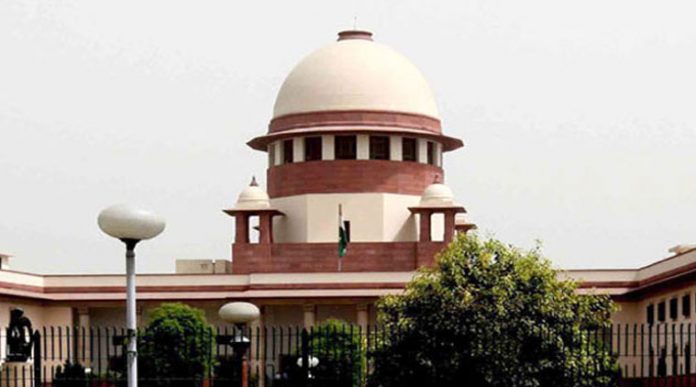Supreme Court Landmark Judgment- ADM, Jabalpur v. Shivkant Shukla 1976 (2) SCC 521
Introduction
This case is often referred to as the black spot on the Indian Judiciary because this judgment had far-reaching consequences on the life and liberty of a citizen of India. The consequences were such that even today the horrors of the turbulent times of India get reflected whenever a reference is made to this particular case.
During the 1970s when the emergency was imposed all the institutions of the country were highly politicized and polarised and even the Supreme Court of India was not left untouched from the same.
Facts
Indira Gandhi’s election was challenged in the Allahabad High Court and the court ordered against Indira Gandhi convicting her for the offenses of wrongful practices to win the election. Desperate to keep the post of Prime Minister, she requested the then President of India to impose emergency in the country.
As a result, an emergency was imposed on 27.06.1975 under A. 359 (1) of the constitution and the order imposing the emergency which suspended A 14, A21 and A22 of the constitution of India.
Several people were unlawfully jailed, detained and put behind bars who opposed the moves of the Prime Minister. As a result, several people moved the High Courts under the provisions of Article 226 of the Constitution of India to secure the liberty of their loved ones by way of using the Writ of Habeas Corpus which provides relief when someone is unlawfully detained.
The High Courts gave relief to such individuals and set them free. However, this was not liked by the ruling leaders and the State filed petitions in the Supreme Court challenging the orders of the High Courts whereby individuals were set free.
Issues
The main issue before the Court was that when an emergency was imposed under the provisions of the constitution and when the A. 14, A. 21 and A.22 had been suspended then can a writ of Habeas Corpus be maintainable in front of the court and can a relief be granted to an individual.
Petitioners Arguments-
It was argued by the State that the main aim of the provisions of emergency was that they vest special powers in the executive to hold complete control over the law and order of the country since an emergency situation is of extreme importance when the situation is delicate.
It was further argued that when a person had been detained it could not be challenged that the order of detention was wrong and that there were no strong reasons to detain a person. When an emergency is announced a person forfeits A. 19 of the Constitution and if a person is held in contravention of the A. 22 of the Constitution the same cannot be questioned in a proceeding of Habeas Corpus since the option to petition the court is closed during the emergency.
It was contended that the curtailment of such a right was done under the provisions of the constitution and a President’s Order cannot be questioned. A presidential order under A. 359 is made under special circumstances and thus it was not open for the court to question the rationale behind the same and entertain a Habeas Corpus petition.
Respondents Arguments
The respondents argued that the object of A. 359 was to remove any type of curtailment on the power of the legislature from legislating during the emergency. The article prohibits moving to the Supreme Court for enforcing certain rights but there was no prohibition on moving to the High Court under A 226 for enforcing statutory rights of personal liberty.
It was also contended that the presidential order was against the principle of natural law and other underlying fundamental principles of law. When there was a law which regulated preventive detention then the same must conform to the conditions set out by the law.
It was also contended that Article 21 was not the sole holder of the right to life and personal liberty. There were rights which were not fundamental rights but statutory or natural rights. These rights were not affected by the Presidential Order and could not be taken away.
It was further argued that where the state had made a law for making detentions then the detentions should be within the confines and conditions of the statute. If the conditions were not met then the detention would go beyond the power of the state.
Judgment-
This case was heard by five judges of the Supreme Court of India. Four of the five judges ruled in favor of the state and held that during an emergency the fundamental rights were not available to a citizen. All rights will be extinguished in light of the presidential order.
It was further held that an individual would not have the option of moving the High Court for a writ of Habeas Corpus if the Presidential Order said so and all the proceedings in the court will remain suspended till the duration of the emergency.
One judge (J) H.R. Khanna, however, gave a dissenting judgment i.e., a view taken against the finding of the majority judgment and this is regarded in today’s times the correct view and the best dissent. It paved way for the future development of the Law.
He held that during an emergency under A. 359 even if a fundamental right is taken away, a person can move the court for the enforcement of his statutory right. He was of the view that A. 21 is not the only place for life and liberty. Even if it is taken away the right to life and personal liberty are the basic tenets of a society. The State cannot deprive a person of his life and personal liberty without the authority of law.





